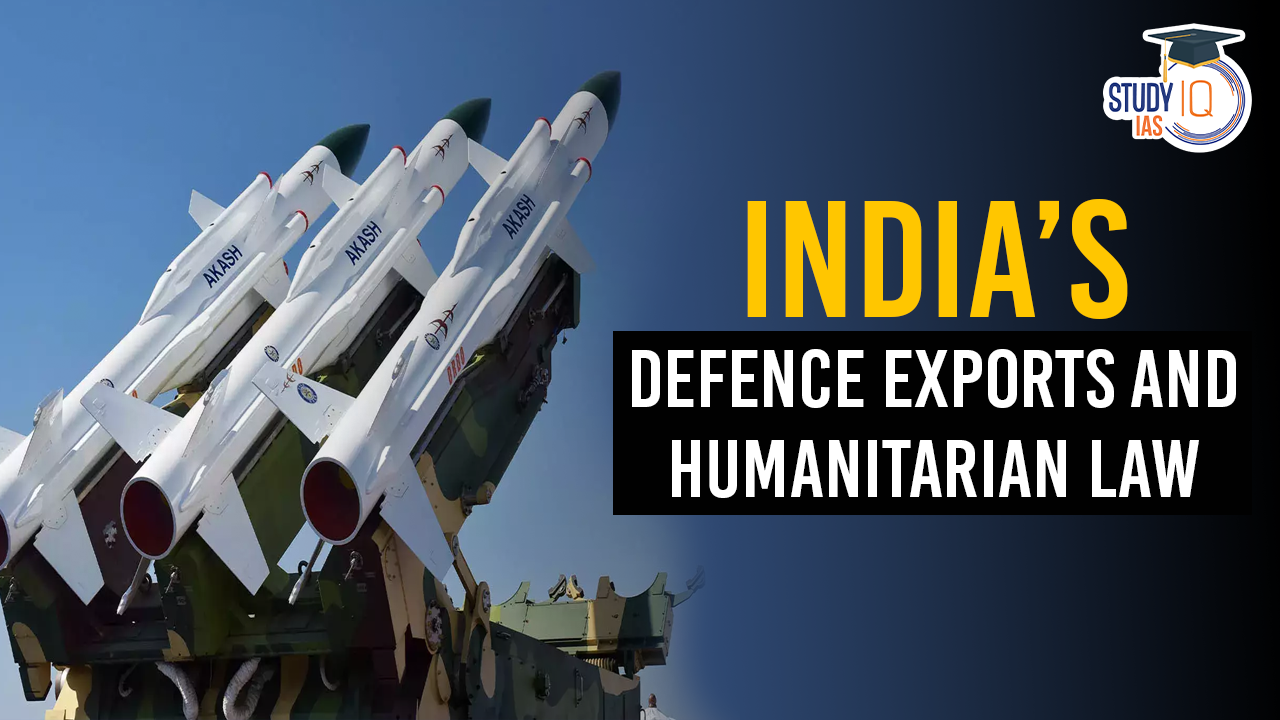Table of Contents
The Supreme Court of India dismissed a public interest litigation (PIL) that sought to halt the export of defence equipment to Israel amidst allegations of war crimes in Gaza.
More in News
- The court ruled that foreign policy decisions fall within the purview of the government (under Article 73), not the judiciary.
- This decision raises significant questions regarding India’s legal framework for arms exports and its compliance with international humanitarian law (IHL).
International Obligations
The petitioners contended that India is bound by various international laws, including:
- Genocide Convention: India has ratified this treaty, which obligates states to prevent genocide.
- The petitioners argued that supplying arms to Israel could contribute to violations of this obligation.
- Geneva Conventions: Common Article 1 requires all states to respect and ensure respect for IHL, implying that countries should not supply weapons if there is a risk they will be used to commit violations of these conventions.
Comparison with Other Countries
Several countries have restricted arms exports to Israel based on similar concerns:
- Netherlands: A court ruling blocked the export of F-35 fighter jet parts to Israel under EU regulations prohibiting military exports if there is a clear risk of IHL violations.
- United Kingdom: The UK government conducted a review under its Export Control Act and found a clear risk that exported arms could be used in serious IHL violations.
Indian Legal Framework
Currently, Indian law lacks specific regulations equivalent to the UK’s Export Control Act or EU regulations regarding arms exports:
- Foreign Trade Act (1992) and Weapons of Mass Destruction Act (2005) allow the government to regulate arms exports but do not mandate an assessment of the importing country’s compliance with IHL.
- This gap means that while India can prohibit exports based on international obligations, it is not legally required to assess IHL compliance prior to exporting defence goods.
Implications for India’s Defense Export Policy
The Supreme Court’s dismissal highlights significant issues regarding India’s aspirations as a major defence exporter. Without legal frameworks requiring compliance assessments with IHL, India risks being perceived as complicit in potential violations when exporting arms.
Recommendations for Policy Improvement
To enhance its credibility as a responsible defence-exporting nation, it is suggested that India amend existing laws (WMDA and FTA) to explicitly include assessments of IHL compliance for countries receiving Indian defence goods. This would align India’s domestic laws with its international obligations and improve accountability in arms exports.


 NATO’s Collective Might Hides Its Wide...
NATO’s Collective Might Hides Its Wide...
 Bamanwas Kankar – Rajasthan’s First ...
Bamanwas Kankar – Rajasthan’s First ...
 Vineeta Joshi Committee: Reforming Schoo...
Vineeta Joshi Committee: Reforming Schoo...

























